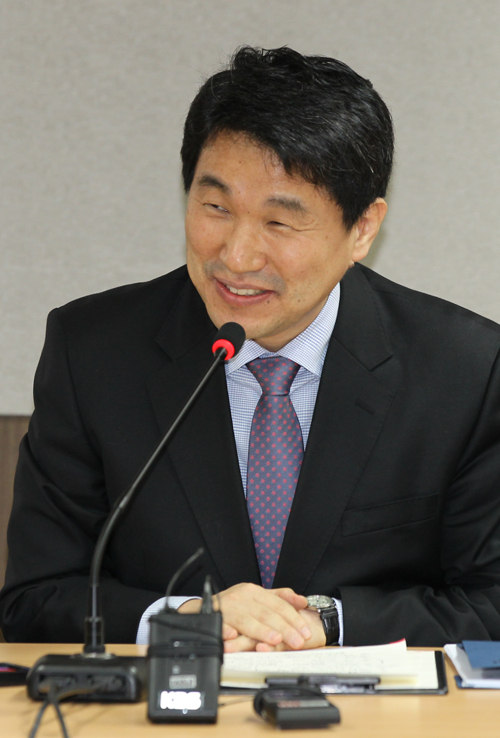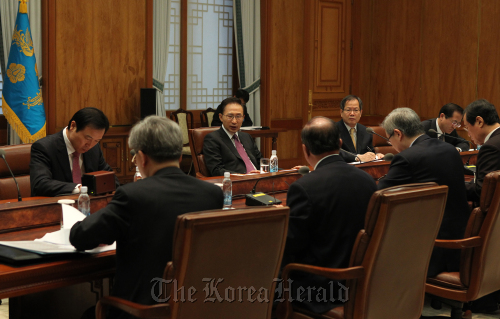The Green Party has drawn back from two key commitments it made in agreeing the Government’s four-year plan.
The party today set out its plans on how to manage the public finances until 2014. In its Better Budgeting document , the party proposed much less severe cuts to social welfare and to non-pay public expenditure over the next four years.
However, it maintained it would not depart from the overall aims of the plan, which has set out a €15 billion adjustment over four years, split two to one between cuts and new tax measures.
The commitment given by Government in the four-year plan was that by the end of 2014, the Department of Social Protection would be spending €3 billion less each year. The Green Party document disclosed the party would commit to a final reduction of only €1.6 billion in the annual social welfare budget by that date.
The party’s finance spokesman, Dan Boyle, said the shortfall would be made up by shifting funds from the National Pension Reserve Fund, and a change in the child benefit system where benefits would be taxed. He also said the Green Party proposal for this sector did not take into account staffing arrangements, which accounted for some of the difference.
The party’s rational for the lesser amount was it would keep social welfare cuts to a minimum and would allow an incoming government maintain basic rates at their current level.
“Increased efficiency, labour activation measures, and the integration of tax and social welfare system will make up the bulk of the savings,” the party said.
The second departure is in relation to current non-pay expenditure. The party has set out its plans for cuts of €2.1 billion, significantly less than the €3 billion provided for in the four-year plan.
The party said it would still “undeniably mean cuts in public services”, but that they would not be as severe as those set agreed by the party in Government. It would fund some of the shortfall through new non-income taxes.
The plan was unveiled this morning at a news conference in the Westin Hotel Dublin by Mr Boyle, party leader John Gormley and the former minister for energy Eamon Ryan.
Mr Gormley said that plan would allow Ireland sort outs its public finances in a way that was fair and equitable and would also allow for the reform of public services.
The party proposes no increases in income tax between now and 2014. However, the party does intend to drawn down monies from the National Pension Reserve Fund to mitigate some of the larger cuts (in social welfare and current spending) and to fund an additional €1 billion spend on capital infrastructure programmes.
The party also proposes to impose a new site value tax, which will replace the second home tax and yield €675 million annually by 2014. It also agrees with the higher rate of carbon tax €30 per tonne. In addition, the party has proposed a new tax on packaging (to be borne by the producer) worth €60 million per annum to the exchequer as well as new waste levies which will rise to €50 milloin per annum by 2014.
These levies, if implemented, would be applied to land fill sites as well as to incineration.
Other proposals include a new financial transaction tax. Mr Ryan said the party was opposed to any sell-off of State assets, with the exception of RTÉ’s transmission assets.
Mr Boyle criticised the plans advanced by Labour and Fine Gael, saying they were not realistic on social welfare nor in their plans to seek voluntary cuts in the public service. He said the Greens would keep the Croke Park agreement under constant review. He contended the Fine Gael plan to cut 17,000 would mean less doctors, nurses, gardaí and teachers.
“Fine Gael cannot deliver those front-line services if it implements those cuts,” he said. Mr Boyle said Labour was being dishonest in trying to say its proposed cuts of €400 million in the social welfare budget could be achieved without cutting the rates and through efficiencies alone.
“The position of the Labour Party, in particular, betrays an immature macho attitude that might lead the Irihs people to question whether they are fit for office,” he said. “They are either cynics or fools.”
Mr Ryan said that drawing €1 billion from the National Pensions Reserve Fund (NPRF) would intensify and accelerate investment in the national retrofit programme and in public transport projects such as Metro North. The extra €700 million investment from NPRF funds, he said, would help create 4,000 construction jobs in developing an infrastructure that met modern economic needs.
Criticising the Fine Gael plan, Mr Boyle said there was no value in selling valuable State assets. “It does not make good economic sense. I am not ideologically opposed to it. For example, in Coillte, it makes a lot of sense to invest in forestry funding."






